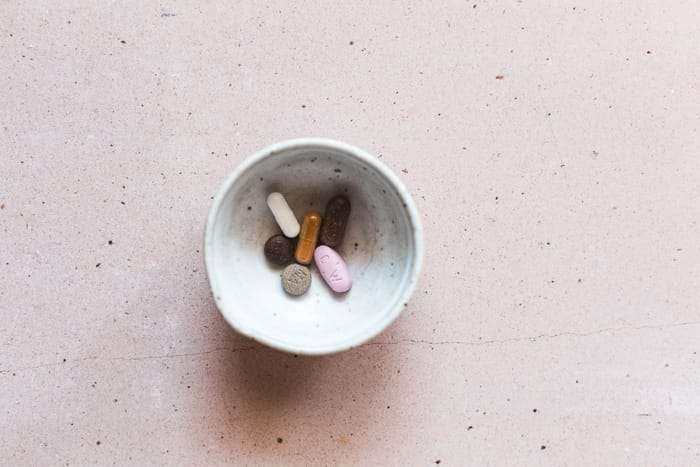What Is Glutathione?
Glutathione (GSH) is often called the “master antioxidant” because of its critical and wide-ranging role in maintaining cellular health and protecting the body from oxidative damage. This small but mighty molecule is a tripeptide composed of three amino acids—glutamine, glycine, and cysteine—and is naturally synthesized within every cell of the human body. Its highest concentrations are found in the liver, the body’s central organ for detoxification, where it plays a vital part in neutralizing harmful free radicals, supporting phase I and phase II liver detoxification pathways, and helping to eliminate heavy metals and environmental toxins.
Beyond detoxification, GSH is essential for immune system function, DNA synthesis and repair, protein and enzyme activation, and the regeneration of other antioxidants such as vitamins C and E. Low levels of glutathione have been linked to a wide range of chronic illnesses, including autoimmune conditions, neurodegenerative diseases like Parkinson’s and Alzheimer’s, cardiovascular disease, and even certain cancers. Factors like aging, poor diet, chronic stress, infections, and exposure to pollutants can deplete GSH stores, making dietary support and supplementation essential strategies for maintaining optimal health and resilience against disease.
What Does Glutathione Do?
GSH’s main functions include:
- Neutralizing free radicals: It helps minimize cellular damage caused by oxidative stress, reducing aging and disease risks.
- Supporting detoxification: Glutathione binds to harmful substances in the liver, making them easier to excrete. It is also involved in helping your body remove excess estrogen.
- Boosting the immune system: It enhances immune response by optimizing the function of white blood cells.
- Regenerating other antioxidants: It helps recharge vitamins C and E, ensuring your antioxidant defences remain strong.
How Does Your Body Make Glutathione?
Your body produces GSH using the amino acids glutamine, glycine, and cysteine. While your cells are designed to make it naturally, poor diet, chronic stress, pollution, aging, and illness can deplete its levels.
How to Boost Your Body’s Glutathione Levels
Eat GSH-Boosting Foods
- Sulfur-rich foods like garlic, onions, and cruciferous vegetables (broccoli, kale, cauliflower) enhance cysteine availability.
- Vitamin C-rich fruits and vegetables (citrus, bell peppers, strawberries) help regenerate GSH.
- Selenium-rich foods (Brazil nuts, eggs, seafood) act as cofactors for enzymes that rely on GSH.
Increase Protein Intake
Ensure you’re eating enough high-quality protein sources to provide the building blocks for GSH production.
Focus on a Glutathione-Supportive Lifestyle
Exercise regularly, sleep well, and reduce exposure to toxins like alcohol, tobacco, and processed foods to support natural production.
Take Supplements That Support Glutathione
N-acetylcysteine (NAC) and alpha-lipoic acid (ALA) are supplements that can enhance glutathione production. ALA also helps to recycle glutathione, manage blood sugar and prevent oxidative damage.
Making the Most of Your Glutathione
To optimize your existing GSH levels:
- Avoid overexposure to oxidative stressors like UV rays and environmental pollutants.
- Manage stress through meditation, yoga, or other relaxation techniques.
- Stay hydrated to support the detoxification process.
Should You Take a Glutathione Supplement?
GSH supplements are available in forms like oral pills, sublingual sprays, and intravenous infusions. However, there’s debate about their effectiveness:
- Oral GSH has limited bioavailability because it gets broken down in the digestive system.
- Liposomal glutathione (encapsulated in fat) offers better absorption but costs more.
- IV glutathione is highly effective for raising blood levels but is more invasive and expensive. (I do not do IV nutrients.)
Is Supplementation Worth It?
If you’re generally healthy, supporting your body’s natural production through diet and lifestyle is often sufficient. However, supplementation might be beneficial for those with chronic illnesses, high oxidative stress, or conditions like liver disease. Always consult a naturopathic doctor before starting a new supplement to make sure that you are taking it safely and effectively.
The Bottom Line
GSH is essential for maintaining optimal health, protecting against disease, and supporting youthful skin. While supplementation can be helpful in some cases, prioritizing a nutrient-rich diet, healthy habits, and glutathione enhancers like NAC and ALA are often the best ways to support your body’s natural production.
Whether you’re looking to age gracefully, boost your detox systems, or simply feel more vibrant, nurturing your GSH levels is a small change with big rewards.

